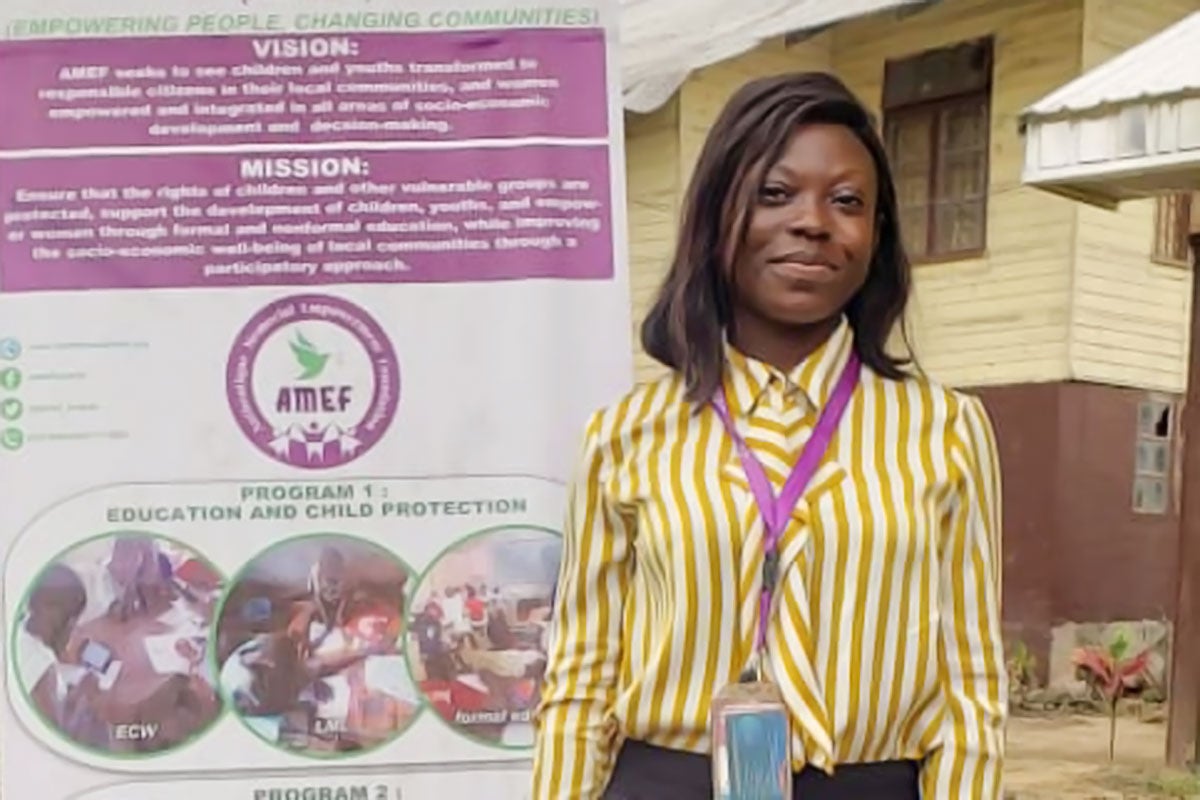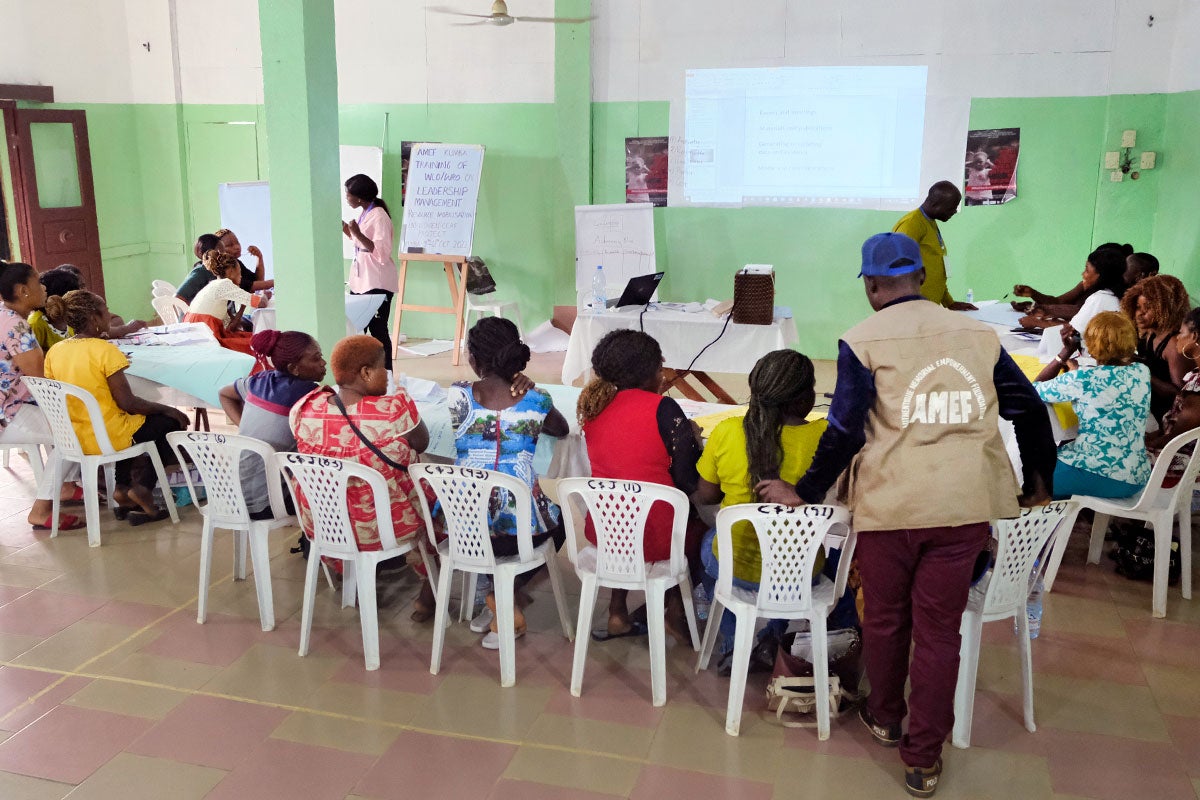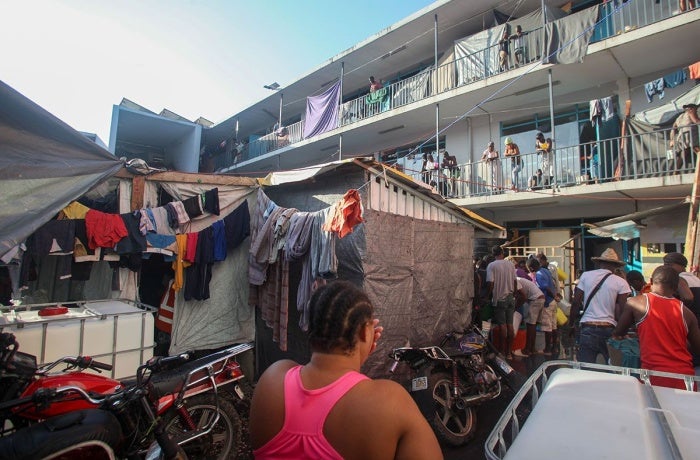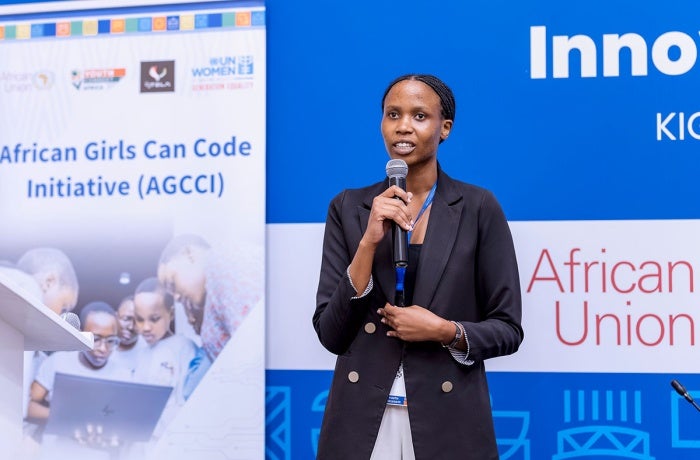Interview with Theresia Ngoe: Women’s organizations want to be seen as partners, not only be told what to do
Following the aftermath of the recent earthquakes in Türkiye and Syria and the historic drought in the Horn of Africa, international organizations have faced the same criticism: humanitarian response is often too slow in reaching the people who need it most. When it does get to communities, it often fails to adapt to rapidly evolving crisis situations.
In recent years, the international community has realized the importance of local partners who are on the ground, know the needs of their communities, and have the trust and flexibility to effectively deliver humanitarian resources. Yet, local women-led and women’s rights organizations still face significant barriers to participation in the formal humanitarian architecture. Often, they report feeling looked down upon by larger organizations, unheard in decision-making spaces, and forced to defend their expertise. These problems are only compounded for women representing minority or marginalized communities.
In 2021, UN Women and UNFPA received a grant from the Central Emergency Relief Fund (CERF), which earmarked 30 per cent of funds to directly empower local women-led and women’s rights organizations.
UN Women spoke with Ms. Theresia Ngoe, Livelihood and Empowerment Officer at the Authentique Memorial Empowerment Foundation (AMEF), a CERF partner on gender-based violence (GBV) prevention and response in Cameroon, to learn more about the discrimination that local women-led and women’s rights organizations are facing in the humanitarian space and how to tackle the barriers that keep them from accessing funding and resources.
This interview has been edited for length and clarity.

What does it mean to be a women-led or women’s rights organization?
AMEF is a women-led human rights organization headquartered in the Kumba Southwest Region of Cameroon, with additional branches in the Northwest, Centre, and Littoral regions. At least 70 per cent of the board and even the staff are women.
What role did AMEF play in the CERF project on GBV prevention and response?
AMEF raised awareness on GBV and case management, built the capacity of local women’s groups working in prevention and response in the Idenau and Nguti subdivisions, and sought to influence social norms. We witnessed positive changes in the delegation of gender roles within households and in the representation of women in community decision-making bodies such as the traditional councils in Ntale and Mongo Ndoi in the Nguti subdivision. In Idenau, GBV survivors opened up to us about their cases and received support, which enabled them to live safer and more dignified lives.
Why is it important for the international community to work with local women’s organizations?
Local organizations are on the frontlines of humanitarian response. We provided the bulk of the humanitarian assistance on the ground before international organizations even showed up. We often work in the most remote, difficult, and hard-to-reach areas that most outsiders can’t access because we understand the importance of not leaving anyone behind.
We also have a deeper understanding of community needs because we live with these people every day. It’s easier for us to provide them with partner support because, often, they don’t accept strangers.

Often local women’s organizations report facing discrimination in their work with the international community. Have you ever had this experience?
When we work with international partners, we sometimes face discrimination—they don’t listen. They already have an exact idea of what they want to achieve in a specific timeframe. You try to explain why contexts on the ground might influence implementation or the achievement of objectives, but they want to make you accept the project design anyway. The international community needs to work with us as actual partners, not just as implementers who will execute whatever they tell us to do.
You’ve mentioned that the international community can be inflexible in working with local partners. Can you explain?
Local women-led and women’s rights organizations see the reality of what is happening on the ground. If we bring points to the table about improving project design, we want partners to review them, instead of just side-lining us and sticking to the original arrangements. For example, there may be times when the initial budget for transportation is wrong because there are roadblocks due to conflict or crisis, and only a few petrol stations are open, so prices are high. Or maybe staff need to stay in a community because they can’t commute back and forth due to security concerns on the roads. Or there’s no electricity, so laptops and other electronic devices needed for reporting are impossible to use. Sometimes, even when partners know the challenges and security concerns we are facing, they are still too strict, and we don’t feel heard.
Why was the CERF project different in this respect?
Our relationship with UN Women through the CERF project was very positive. First, it improved our capacity to provide psychosocial support and case management services to GBV survivors.
Second, it had a positive impact on our participation in the GBV sub-cluster. For example, when we brought recommendations to cluster meetings about how to close gaps, these were viewed as a great contribution to GBV response planning and were applied by our partners.
In one instance, we noticed that the partner working on livelihood support needed to wait for a different partner to first complete psychosocial assessments with survivors. Because timelines were short, the partner working on livelihood support often couldn’t wait for these referrals in order to meet their implementation deadlines. The UN Women CERF team acknowledged this gap and provided a listening ear for our recommendations, for example, having one partner do both the psychosocial assessments and the livelihood support, or using two partners but making sure that referrals for livelihood support were offered throughout the project’s duration. This made us feel accepted and valued.
How does respect for local partners impact project sustainability?
Unlike the international community, the local partners will always be there. We do not just disappear when the projects are done. For example, in Idenau, we discovered that the children of internally displaced persons can’t go to school because of a lack of financial resources. We already have education programmes up and running, built on the work we were doing through the CERF project. So, if you truly work with local partners, they’ll sustain support, which will have a long-term benefit for the people we are serving.









